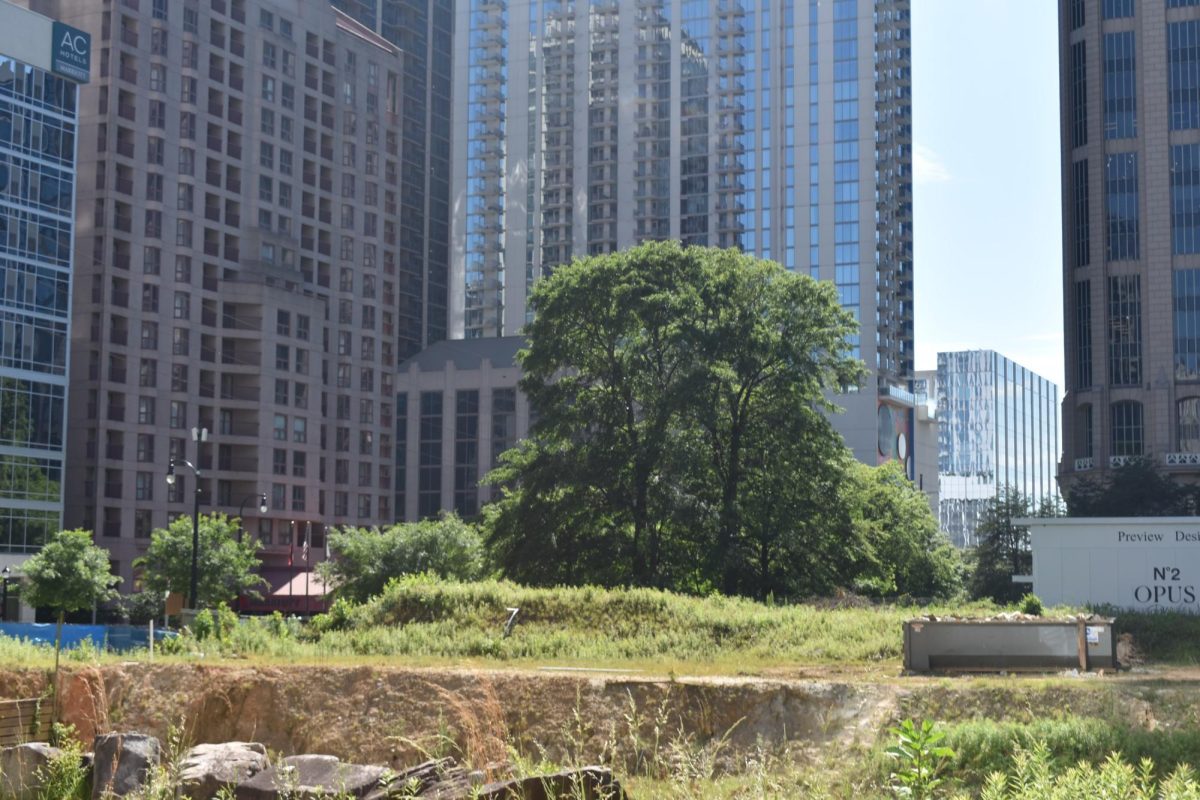Two miles from Grady, Cheshire Bridge Road plays host to a stretch of neon lights, flashy signs and a number of unconventional shops. Along with the late-night attractions, Cheshire Bridge houses a wide variety of restaurants, auto shops and retail businesses, making it a truly diverse and unorthodox place. The city of Atlanta’s zoning review board has suggested a new proposal to make Cheshire Bridge Road a more family-friendly area.
In 2005, the zoning review board rezoned this area to allow only the establishment of businesses that followed the board’s rezoning standards. This prevented new strip clubs from being opened along Cheshire Bridge Road. Some businesses, however, such as the Dollhouse and Onyx strip clubs, were grandfathered in and not uprooted. The new legislation under consideration aims to force all adult businesses out of the area but will also affect other businesses in the same districts. The businesses would have a period of two years to recoup losses and either to apply for an extension or leave the area completely.
City council member Alex Wan, who designed the proposal, said this plan is necessary to follow up on the law passed in 2005.
“The purpose of the proposed legislation is to remove barriers that prevent the realization
of the vision that the community carefully and thoughtfully crafted more than a decade ago for the Cheshire Bridge Road corridor,” Wan said. “There has not been any meaningful movement towards seeing that plan come to fruition.”
Some residents near Cheshire Bridge believe the adult businesses give the neighborhood a negative reputation, harming the community.
“That perception then prevents businesses, developments and other uses from moving to the corridor and helping it realize its full potential,” Wan said.
Some of the Cheshire Bridge residents, however, disagree with the proposal.
“The popularity of the clubs attract so many people that without them, most of the restaurants would be empty,” said Mitchell Zastrow, a 20-year resident of Cheshire Bridge.
Zastrow believes the adult entertainment businesses do more good than harm for Cheshire Bridge. He thinks they bring in more business and increase the market potential of the area rather than decrease it.
Wan’s ordinances pursue the abolition of the grandfathered businesses by 2015 unless they yield to the 2005 rezoning standard. If they do not comply with this standard, Wan believes the two-year window gives businesses enough time to recover any losses.
Attorney and Grady graduate Alan Begner, who represents Dollhouse, believes the two-year interval is hardly enough time for the businesses to reimburse themselves for their investments. Because of this, Begner said the businesses will more than likely be forced to close instead of relocate.
“The landlords will not be able to rent their property for even close to as much as now,” Begner said. “Some club workers would be able to work at other adult clubs, but these adult club owners and most workers will find their financial affairs and lives ruined.”
Begner believes the adult entertainment businesses have as much right to stay on Cheshire Bridge as any other business, and Wan’s proposal is both unconstitutional and unjust.
“The U.S. and Georgia Constitution[s] prohibit the taking of property by a city without paying for it and using it for a public purpose,” Begner said. “Adult businesses should be allowed to stay for the same reason any business should. It is illegal and immoral to steal someone’s business and cause them to suffer financial ruin.”
Begner said the adult clubs and businesses that would be hurt by the zoning plan provide jobs for about 800 people and bring neighbors and other visitors to patronize all the other businesses in the area.
Board members chose to defer any decisions pertaining to the proposition until early March. During this interlude, the board will meet with councilman Wan to review public concerns.






